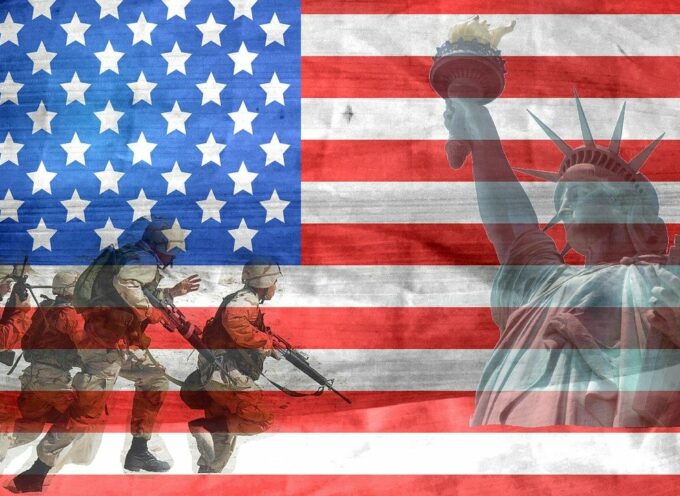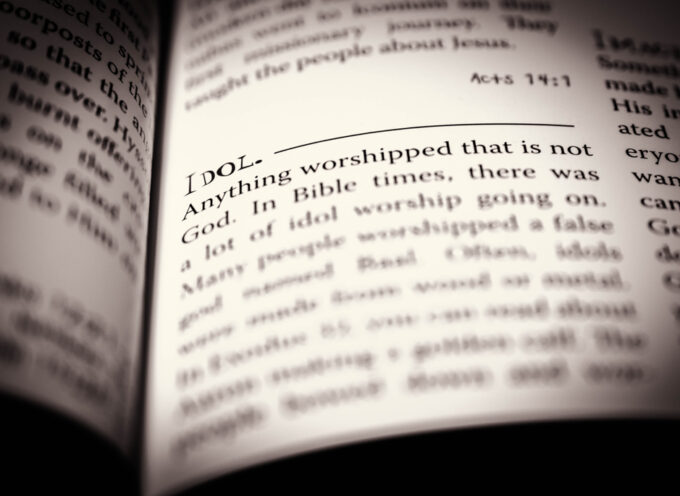One of the most intriguing writers I’ve encountered recently is French political philosopher Pierre Manent. I’ve just now finished Beyond Radical Secularism: How France and the Christian West Should Respond to the Islamic Challenge (2015) and thought it worth while to trace the main contours of the book. I’ll summarize briefly, with minimal interaction.
Manent’s Overall Research Program
Manent believes that Europe has become spiritually and politically anemic. Its downward spiral began with the atrocities of World Wars I and II. Horrified at the blood spilled between historically Christian societies, Europe rejected not only the biblical God but also the nation-state (a political form arising from the Christian imagination). Moreover, Europe’s weakened condition was exacerbated by social upheavals of 1968 and the terror acts of 2015.
Manent’s Purpose in Beyond Radical Secularism
In Beyond Radical Secularism, Manent addresses France’s relationship with its burgeoning Islamic population (10). Although the book does not focus on terrorism, Manent writes in the immediate aftermath of the Charlie Hebdo massacre (Jan 7, 2015) and the subsequent terror bombings (Nov 11, 2015). Hoping to help France find a better way forward, socially and politically, he appeals to French Christians, seculars, and Muslims.
He recognizes that his argument will potentially offend folks on all points across the social and political spectrum, but constructive discussion and debate necessitates that risk:
This essay [is] born of the perplexity, even the disorientation that the situation brings about in us [and] is an effort to discern and to weigh the factors of the situation…. this essay is also an exercise in sincerity…. In effect, without a sustained and rigorous effort of civic sincerity, we have no chance of overcoming, or even honorably of facing, the trials that are before us” (7).
What might Westerners find offensive in Manent’s sincere argument?
For starters, Manent argues that France has refused to reckon with Islam as a religion, as a thick communal identity, because to do so would be to admit that political liberalism is wrong to conceive of society as little more than an aggregate of individuals who have rights. To recognize Islam as an immense worldwide brotherhood with instantiations in France would be to admit that the Western elite have been wrong all along. It would be to admit that world religions are not antiquated and outdated relics that will fade into oblivion. It would be to admit that the West’s story will not end with a religionless and borderless utopia in which individuals will be free to consume goods and do as they please without the types of ideological tensions and wars caused by religions and nation-states (8ff.).
“If I have one ambition,” Manent writes, “it is that the analysis I propose of the European experience might be adequate to allow us to see Islam as an objective reality, instead of its remaining the reflection of our misunderstanding” (69).
Manent’s Argument
1. France is weak spiritually and politically, but French Muslims are strong.
Manent argues that France finds itself weak spiritually and politically because it is embarrassed of its historical religion, Christianity, and its political form, the nation-state. But Europe’s Muslims are strong because they are proud of their religion and its communal bonds. Muslims are too strong to buy into the secularist and individualist fantasies of political liberalism.
France, Manent argues, did not ask for this situation, but it does not have a choice. It must reckon spiritually and politically with the presence of Islam:
The forward thrust of Islam has surprised us so much that many of us have trouble coming to terms with and soberly assessing the situation…. We…find ourselves in a defensive position. Again, we did not choose this position. This is the first time for quite a long time that something new in the West did not come from within Western life…. [W]e must therefore defend ourselves from no other standpoint than that of defending ourselves and preserving as much as is possible of our material, moral and spiritual goods (44).
The French people—Christian, Muslim, or secular—must together hammer out an arrangement in which the Muslims are accepted as fellow citizens, yet without their way of life “being confused with the law or taking the place of the law” (17).
Manent suspects that there a few French Muslims at one end of the spectrum who assimilate into French culture, losing their Islamic identity. And he knows there are a few French Muslims who, at the other end of the spectrum, reject French identity and are bent on war with the West. However, Manent avers, the vast majority of French Muslims are in the middle of the spectrum.
And those Muslims, the ones in the middle of the spectrum, continually feel like aliens in France, precisely because of the Western conceit that ignores the Islamic community as a community, preferring to pretend that Muslims are isolated individuals who happen to be Muslim.
2. France must recover its heritage as a nation-state.
For French Muslims to make themselves appropriately at home, France must know who it is. Modern secularism and individualism have stripped away France’s national identity and its ability to cohere around a common good. These twin ideologies minimize society’s institutions and associations—such as family, church, and nation—while focusing almost exclusively on the isolated individual as a member of the global community (79, 95) They focus on the individual and the good of an abstract global community but refuse to focus on the common good of the nation.
But the elite Western project is wrong-headed in as many ways as it is right. There will never be a world without borders (36). Humans will never flourish apart from families, neighborhoods, religious communities, and nations. Humans will always be drawn to communities and communal life and the most dangerous forms of communal life—such as Communist socialism and Nazi socialism—are those that have rejected religion.
No nation, Manent argues is religiously or ideologically neutral. There is always a religio-ideological underpinning that determines a nation’s vision of the common good. There is always something that undergirds and defines what a nation means by terms like justice or freedom. Thus, France must recover its “ancient constitution” (50), its willingness to conceive of itself as a nation with a “Christian mark” (115). It must revive a distinctively Christian politic that envisions the common good in terms of civic friendship.
3. France must negotiate a “common” good for its Christian, secular, and Muslim citizens.
Manent urges French citizens—Christian, secular, and Muslim—to hammer out a workable social contract. In so doing, Muslim citizens will finally have been recognized not only as individuals but as a religious community, and they will be able to view France as a homeland rather than an alien residence. But in exchange, they pledge allegiance to France, maintain a degree of separation from the worldwide umma with its foreign funding and extremism, and agree to forego polygamy and the burqa (49).
They must forego polygamy because marriage between a man and a woman is the indispensable pillar of society. They must forego the burqa because “first of all because it prevents the exchange of signs by which a human being recognizes another human being…. The visibility of the face is one of the elementary conditions of sociability…. Europeans have never concealed the face, except the executioner’s” (49).
If France opts out of this difficult conversation, French Muslims will become ever more closely-knit, while never having cultivated a meaningful relationship in relationship to other ways of life (80). They will be condemned to an “impoverished sociability” in which they experience France as merely “a foreign body” (100). Furthermore, if France opts out from the difficult conversation, it will eventually be Islamicized by default (82).
4. France’s path forward will inevitably be difficult.
No matter which path France chooses, the path ahead will be difficult. To renege on their responsibility to engage in national politics, negotiating in good faith with other-believers—whether Christian, secular, or Muslim—will be to capitulate to Islamicization. But to take up their responsibility, sincerely, and in good faith, may bear good fruit, even beyond France’s borders.
The conclusion to Manent’s nineteenth chapter is worth quoting at length:
In truth, what is being asked on the one hand and on the other is a masterpiece of imagination and moderation. We would not be volunteering for such an undertaking if we had a choice. We do not have a choice. It is too late to return home from a situation that has resulted much more from our lack of reflection than from our deliberate decisions. In any case, while our failure would signify the dislocation of the nation and the inglorious end of an enduring hope, success would resonate well beyond the narrow limits of our country, since the main spiritual forces of the Atlantic and Mediterranean worlds would be concerned. This should motivate our desire for glory, if we have any left (110).
Application to the United States
An evaluation of Manent’s thought will have to wait until a later time, but for the moment, I will make a few points of application to our situation in the United States. There are aspects of Manent’s program with which I differ, but those will be enumerated in a future publication. For now, then, a few points of positive application.
First, Manent is right to point out the destructive nature of the West’s rejection of Christian religion and of nation-based politics. Having displaced Christianity from the social default position, many Western elites wish to usher a world of isolated individuals into a religionless and borderless utopia. Religions and nations, they argue, are the root cause of bloodshed.
But these elites are wrong, and Americans should reject their ideology. They are wrong, historically, that religions are the cause of the world’s greatest bloodshed; the worst mass violence in world history has been perpetrated by secular regimes—Communist socialism and Nazi National Socialism. They are wrong, anthropologically, to ignore the evil within the human heart, assuming that if we could just get rid of systematically evil institutions such as churches and nation-states, we can usher in a utopia.
Second, Manent is right to point out that no political arrangement is truly neutral. Even a principled pluralism, such as I espouse, must recognize that some religion-ideology undergirds every political arrangement, defining its significant terms, such as “justice” or “liberty.” The United States, like France and other European nations, should not be embarrassed to “put our cards on the table,” recognizing that it was Christianity out of which Western notions of justice and liberty arose.
Third, Manent is right to ask France to act now, to hammer out a working political arrangement that recognizes France as a nation “of a Christian mark,” or else it will live under Sharia law in the future. Similarly, Americans should recognize our own nation as a nation “of a Christian mark,” or else our nation will be seconded by secular ideologies such as the socialism-progressivism duplex on the left or the ethno-national impulse on the right.
Subscribe
Never miss a post! Have all new posts delivered straight to your inbox.







